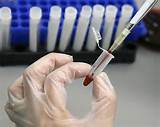Pavilion Publishing and Media Ltd
Blue Sky Offices Shoreham, 25 Cecil Pashley Way, Shoreham-by-Sea, West Sussex, BN43 5FF, UNITED KINGDOM
 Data presented at the Digestive Disease Week meeting in San Diego supports the use of Adacolumn in certain patients with moderate-to-severe, steroid-dependent active ulcerative colitis (UC).
Data presented at the Digestive Disease Week meeting in San Diego supports the use of Adacolumn in certain patients with moderate-to-severe, steroid-dependent active ulcerative colitis (UC).
The data, taken from the 48-week ART trial, shows remission and response rates of 37.2% and 53.2% respectively at week 12 in in patients with moderate-to-severe, steroid-dependent active UC with insufficient response or intolerance to immunosuppressants and/or biologics treated with Adacolumn.
Adacolumn is a medical device used as a non-pharmacological treatment that reduces inflammation by removing white blood cells from the blood circulation. This reduces the inflammatory burden without the risk of side effects attributed to drugs in patients with inflammatory bowel disease (IBD), such as active UC.
UC is associated with an imbalance of white blood cells known as leukocytes (granulocytes/monocytes), which play a key role in inflammation. In UC, these inflammatory cells migrate into the intestinal mucosa at twice the normal levels causing mucosal inflammation. Targeting leukocytes or their communication is the rationale behind most IBD treatments.
UC is a chronic relapsing and remitting inflammatory condition of the colon affecting up to 246 people per 100,000 population. Relapses present with symptoms such as abdominal pain, bloody diarrhoea, weight loss and anaemia, all of which have a significant impact on quality of life.
Professor Dr Axel Dignass, Agaplesion Markus Hospital in Frankfurt, Germany, said: “Ulcerative colitis is a debilitating disease with increasing prevalence and affects many young people. Ultimately, the goal of our treatment is to induce steroid-free clinical remission. However, patients with moderate to severe ulcerative colitis and their healthcare professionals are faced with many hard choices, particularly when it comes to choosing the best treatment, since many have side effects that severely impact quality of life and may even be life-threatening.
“The ART data have shown that there is an alternative for this difficult-to-treat population with a favourable safety profile that can delay the need for irreversible surgery. In addition, it is important to note that colectomy rates were comparable to those seen in anti-TNFs trials with stricter selection criteria. This shows that Adacolumn may be an alternative to elective surgery when compared to anti-TNFs in a less-selected population.
“Ultimately, these data show that Adacolumn provided clinical benefit in a large cohort of steroid-dependent patients with ulcerative colitis with previous failure to biologics.”


